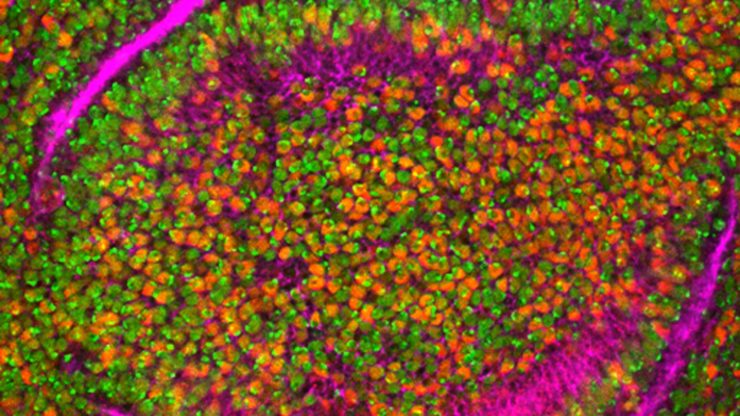Protein is an essential nutrient that plays a vital role in our body’s structure and function. However, consuming too much protein can have adverse health effects.
In this article, we will explore the health risks associated with excessive protein consumption, how much protein is too much, and how to balance protein consumption with a healthy lifestyle.
Jump to Section
Understanding Protein Consumption
Protein is a macronutrient that is crucial for the growth and repair of tissues in our body.
It is also essential for the production of enzymes, hormones, and other molecules that regulate the body’s processes.
Protein is found in various foods, including meats, poultry, fish, dairy products, legumes, and nuts.
Benefits of Protein Consumption
Muscle Growth and Repair
Protein is essential for building and repairing muscles. Athletes and people who engage in regular physical activity require more protein to support muscle growth and repair.
Weight Management
Protein can also promote weight loss by reducing appetite and increasing feelings of fullness. High protein diets have been shown to be effective in reducing body weight and fat mass.
Improved Bone Health
Protein is a crucial nutrient for bone health. It contains amino acids that are essential for the formation, maintenance, and repair of bones.
Appetite Control
Protein can regulate appetite and help with weight management by reducing hunger and increasing satiety. It can also prevent overeating and snacking between meals.
Health Risks of Excessive Protein Consumption
Consuming too much protein can have adverse health effects. Here are some of the most significant health risks associated with excessive protein consumption:
Kidney Damage
Excessive protein consumption can put a strain on the kidneys, which can cause kidney damage and increase the risk of kidney disease.
Weight Gain
Excess protein consumption can lead to weight gain, especially if the individual consumes more calories than they burn.
Liver Problems
Consuming too much protein can also have adverse effects on the liver, such as liver damage and liver disease.
Osteoporosis
High protein diets can increase the risk of osteoporosis, a condition characterized by weak and brittle bones.
Dehydration
Consuming excessive amounts of protein can also lead to dehydration, as it requires more water to process protein.
Heart Disease
High protein diets, particularly those that are high in animal protein, can increase the risk of heart disease.
| Health Risk | Impact |
|---|---|
| Kidney Damage | Increased risk of kidney disease |
| Weight Gain | Increased risk of weight gain |
| Liver Problems | Liver damage and liver disease |
| Osteoporosis | Increased risk of weak and brittle bones |
| Dehydration | Increased risk of dehydration |
| Heart Disease | Increased risk of heart disease |
How Much Protein is Too Much?
Determining how much protein is too much depends on several factors, such as age, sex, weight, and activity level.
Determining Your Protein Needs
To determine your protein needs, consider factors such as your sex, age, weight, and activity level. Athletes and people who engage in regular physical activity require more protein than those who are sedentary.
Recommended Daily Intake
The recommended daily intake of protein varies depending on age and sex. According to the CDC, adult men and women should consume between 46-56 grams and 46-50 grams of protein per day, respectively.
Protein Supplements
Protein supplements can be an effective way to increase protein intake, but they should not be used as a substitute for whole foods. It is best to consult a healthcare professional or registered dietitian before taking any protein supplements.
Balancing Protein Consumption with a Healthy Lifestyle
Variety in Your Diet
To achieve a balanced diet, it is essential to consume a variety of foods that contain protein, such as meat, poultry, fish, dairy products, legumes, and nuts.
Exercise and Protein Usage
When consuming protein, it is crucial to pair it with regular exercise and physical activity to support muscle growth and repair.
Incorporating Plant-Based Proteins
Plant-based proteins, such as legumes, nuts, and seeds, can be a healthy alternative to animal-based proteins. They are also more sustainable and environmentally friendly.
Eating Mindfully
It is also crucial to practice mindful eating habits when consuming protein. Avoid processed and high-fat protein sources and opt for leaner, whole food options.
Moderation is Key
In conclusion, while protein is an essential nutrient, excessive protein consumption can have adverse health effects.
To maintain a healthy balance, it is crucial to consume protein in moderation, pair it with regular exercise, and consume a variety of protein sources.
It is also essential to consult with a healthcare professional or registered dietitian to determine your protein needs and achieve a balanced diet.
FAQ
Is it possible to consume too much protein?
Yes, consuming excessive amounts of protein can have adverse health effects such as kidney damage, weight gain, liver problems, osteoporosis, dehydration, and heart disease.
What is the recommended daily intake of protein?
The recommended daily intake of protein varies depending on age and sex. According to the CDC, adult men and women should consume between 46-56 grams and 46-50 grams of protein per day, respectively.
Are plant-based proteins a healthy alternative to animal-based proteins?
Yes, plant-based proteins such as legumes, nuts, and seeds can be a healthy alternative to animal-based proteins. They are also more sustainable and environmentally friendly.

With a deep passion for personal development, Ben has dedicated his career to inspiring and guiding others on their journey towards self-improvement.
His love for learning and sharing knowledge about personal growth strategies, mindfulness, and goal-setting principles has led him to create My Virtual Life Coach.
Contact Ben at [email protected] for assistance.




